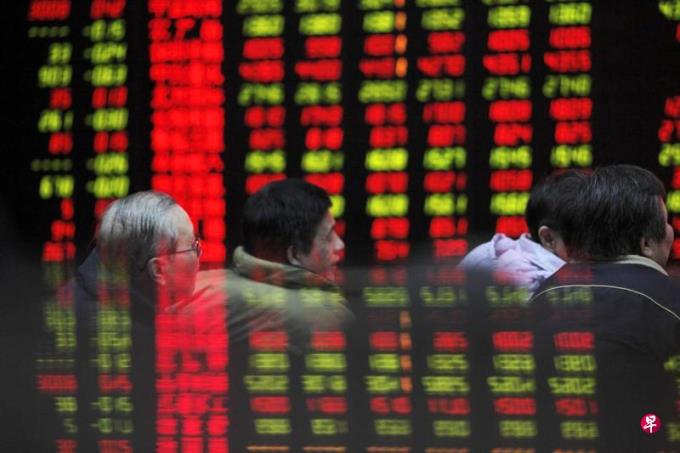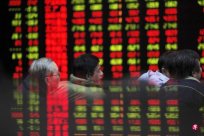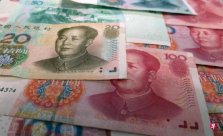
The Chinese government finally chose the stock market instead of the property market as the core means to stimulate the economy. In the short term, it has achieved great results.However, whether the Chinese stock market can enter the big bull market, the author believes that there is the following 10 points.
On September 18th, 50 basis points for interest rate cuts at the Federal Reserve. Pan Gongsheng, President of the Bank of China, believes that interest rate cuts provide space for the loose monetary policy of Chinese monetary, and launched "securities, funds, insurance companies for convenience" and "stock repurchase increase holdings to increase their holdings.Loan "two innovative tools, encouraging funds to flow into the Chinese stock market.The market responded enthusiastic about this. The Shanghai Stock Exchange Index hit a low of 2689 on the day of the Federal Reserve ’s interest rate cut, and the eight trading days rose 24.8%in a row.It also risen significantly.The fact is obvious -after the Federal Reserve cut interest rates, global funds are buying Chinese stocks crazy.
World investors, including Singapore, want to see: Two Sino -US super powers are becoming increasingly tense in trade and scientific and technological warfare, and choose to attract world investor funds with their respective stock markets to start peaceful competition.EssenceCompetition in the capital market is a way -based, transparent, and innovative way of competition. By attracting global capital inflows, both countries can promote the innovation and development of domestic enterprises. By optimizing the financial system, increasing corporate transparency, and attracting global capital to enhanceIts competitiveness can also provide wider financing channels for the technology companies of the country, and further promote technological progress.This not only helps solve the problems of the two countries in technology competition, but also inject more motivation to the global economy.
The competition in the capital market is different from the trade war or scientific and technological warfare. It is essentially peaceful and mutually beneficial.Global capital flow follows market logic, and investors will choose economies of economies with sound systems, transparent markets, and strong innovation capabilities.The Chinese government finally chose the stock market instead of the property market as the core means to stimulate the economy.However, whether the Chinese stock market can enter the big bull market, the author believes that there is the following 10 points.
First of all, the core valuation advantage.China's current economic dilemma is caused by the super -large cycle of the domestic real estate market, which is caused by the aging population and a series of unreasonable policies before and after the epidemic.Relatively speaking, the operating capabilities and governance mechanisms of listed companies in China are acceptable, and the valuation indicators such as P / E ratio and market value account for the proportion of GDP (GDP) are not only lower than the United States, Japan, and Europe, but also significantly lower than India and India and Europe.Stock markets such as developing countries such as Vietnam.
Secondly, the problem of non -shareholders' holdings of non -shareholders.From September 26th to noon from September 30th, more than 80 companies have disclosed A shares. The shareholders 'recent reduction of holdings or future holding plans. 39 companies' shareholders intend to reduce their holdings.Until mid -to -late January next year.In the future, unless banks or securities companies are willing to mortgage discounts to achieve non -transaction circulation for non -shareholders in large and small non -shareholders, investors need to pay close attention to the willingness of these companies to hold their shareholding.
Once again, it is a huge amount of reserves of first -level capital and the impact of the first public offering (IPO).In the past 10 years, local government industrial funds and private entrepreneurial venture capital (VC) have accumulated over 10 trillion yuan (RMB, the same below, the same, about 1.85 trillion yuan) market value.These government industrial funds are urgently needed to withdraw their equity and exit in the form of IPO shares.Speaking of a sentence offending the first -level market industry: The secondary market is weak to this, how can Huangtai melon pick up?
In the past three years, the number of IPOs in China's capital market is usually twice or more in the United States.In the future, unless the management clearly limits the number of IPOs and the total amount of financing, the main theme of the Chinese stock market will always be "happy new and hate the old, resign and welcome the new". There is no century -old company.
Fourth, how to regulate local government selling stocks to repay debt?Taking the most heavy debt burden as an example, Guizhou Maotai has recently risen to a market value of 2.2 trillion yuan.In the past three years, Guizhou Province State -owned Capital Operation Corporation has repeatedly reduced holdings of Guizhou Maotai shares, cash out nearly 100 billion yuan.Similar situations are very common in all parts of the country, and the total amount of local platform debt is estimated to be more than hundreds of trillion yuan.In the future, unless the local government's financing interest rate has declined significantly, investors must be very alert to such local holding platforms to use the "debt" operation of the stock market.
Fifth, will banks and insurance companies add in the bull market to compensate for core capital?The real estate market continues to be sluggish, and its impact on the Chinese banking industry is significant.Some local commercial banks have urgently need to compensate core capital or secondary capital by adding stocks to meet the requirements of the Basel agreement.However, it is unable to implement it under the bear market limited to bank stocks lower than net assets. Once the bull market comes, the addition of bank stocks is justified.
The author has never forgotten: On January 20, 2008, Ping An of China intends to publicize the issue of not more than 1.2 billion shares, and the total financing of 41.2 billion yuan in convertible bonds is 160 billion yuan.In February of that year, SPD Bank also fell by 25.1%due to re -financing rumors.It is hoped that under the financial regulatory pattern of "One Stop, One General Administration for a while", the situation of the "one line and three meetings" in the past is expected to improve, otherwise investors will still be careful of banks' re -financing issues.
Sixth, can active fiscal policies benefit listed companies?At present, it is generally estimated that China will implement active fiscal policies in the next few years, and invest in trillions of dollars to support the people's livelihood projects.Since 2015, fiscal policies are concentrated in infrastructure and social livelihood projects, such as: Wingyuan Mountain Village Hydropower Communication, Middle and Western Expressway, Urban shantytown reconstruction, greening and garden construction, rural hospital clinics, drinking water safety, post -disaster reconstruction, energy saving and emission reduction reduction, Green buildings, etc.However, local governments tend to appropriation for a class of fiscal funds, set up a specialized enterprise and institution to undertake.Low.
The author recommends that in the future, the central government's financial allocation should strictly restrict the new establishment of new enterprises. As the most stringent, the most standardized tax, the most reasonable A -share listed company in China, it should have the priority of contracting, and all non -listed enterprises will be excluded.Otherwise, the shell company is everywhere, how about the bull market?
Seventh, we must change the concept of "first -level market higher than the secondary market".In the past, it was limited to ideological and traditional small farmers, and investment in the secondary market in the stock market was always considered speculative.State -owned enterprises' investment in the stock market is to depart from the main business and speculation. State -owned bank investment stock markets are the "financial services to the entity", and they are not forgiven by cooking for ten money.On the contrary, investment in the first -level equity market is actually cultivating the new economic revitalization industry; the Hefei and Wuxi Municipal Government once won the reputation of "Venture Cities", but it is precisely the Wuxi and Nanchang government, which has led to huge losses in the photovoltaic first -level market investment.
From the experience of the United States, there is no distinction between the first and secondary markets, and it should not be thick.Buffett Buffett is mainly investment in the secondary market, but is also the spokesperson of US capital and morality. It is the big savior of the US subprime mortgage crisis.Bain Capital and Blackstone, which are dominated by the first -level market, have a poor reputation and are often regarded as barbarians outside the gate.
The author believes that the provisions of the “do not invest in secondary market stocks” issued by the government investment fund issued by the Ministry of Finance in 2015 are no longer suitable and should be deleted.Only when the government takes the lead in rectifying the secondary market, can there be hope to cultivate a bull market.After all, the current valuation of the first and secondary markets is also very close.The government has invested in the open, fair, and fair secondary market, just to avoid the first -level market of the vague fragrance and the lower market.
Eighth, housing provident fund and personal pension accounts should be allowed to invest in the stock market.
China's provident fund system is said to refer to the central provident fund system in Singapore.But it is strange that no matter whether Singapore, Hong Kong, the United States, or Japan, there is no one to buy a house."Housing Provident Fund".The 401K plan in the United States generally can only invest in the stock market bond market and cannot be used for buying a house.Singapore Central Provident Fund can be used to buy a house or invest in the stock market, bond market or gold. Most people buy a house when they are young.Child education.Under the current Chinese housing provident fund system, after returning from the middle -aged and elderly loans, you have to buy a second suit for using the provident fund, which is obviously not reasonable.
From the perspective of American experience, retirement funds that exempt individual taxes are the source of living water at the capital market bull market.Of course, if it is limited to the current status of China's real estate market and the reform of housing provident fund is difficult to achieve, personal pension accounts should be free to invest in A shares.At present, the investment scope of this account includes: personal pension insurance products, personal pension savings, personal pension public fund products, and personal pension wealth management products, but they cannot buy and sell stocks.
Ninth, vigorously promote financial instruments such as exchange trading funds (ETFs) and individual stocks.As the most mainstream stock investment tool, the A -share market ETF management fee is roughly 0.15%to 0.50%, which is significantly higher than 0.03%to 0.02%of the US stock market.Statistics show that the cumulative income of the CSI 300ETF with a high rate of 0.6%in the past five years is 3.52%, the cumulative earnings of the CSI 300ETF with a low rate of 0.2%low rate of 7.40%, and the difference between the two is 3.88 percentage points, mainly because of the two product rate rates.The poor accumulation is caused.Individual stock options and ETF options are highly flexible and effective financial derivatives in the global capital market. They have functions such as hedging risk, speculative profits, enhanced returns and shortness of shortage.In mature markets such as Europe and the United States, these tools have been widely used, and play an important role in risk control, market pricing and liquidity improvement.
With the gradual maturity of the Chinese capital market, the level of investor education and the improvement of financial quotient (financial IQ), the options and ETF option markets should also flourish.ETF options allow investors to shorten the entire market sector or index, not only can hedge the risks of specific industries, such as technology, finance or consumption sectors, but also use short profit when foam or unreasonable pricing in the market.
10th, the bull market must increase the securities' illegal blows.Judging from the experience of the US stock market, cracking down on securities illegal behavior is an important measure to maintain the stability of the capital market and protect investors' rights and interests.Compared with the US Securities Fair (SEC) and the Financial Industry Regulatory Administration (FINRA), the China Securities Regulatory Commission and the General Administration of Finance still gap in institutional supervision, information disclosure, legal protection mechanism and investor education.For example, SEC's reporting mechanism encourages people familiar with the matter to report fraud and provide economic rewards for reporters.These measures not only help protect investors' rights and interests, but also lays the foundation for the long -term stability and development of the capital market.We look forward to the crackdown in the bull market to violate the law faster, stronger and harder.
In summary at 10 o'clock, if you see the hope of more than six o'clock in the year, the Chinese stock market is expected to enter the bull market.
The author has served as the China Securities Regulatory Commission and Exchange. It is currently a Singapore licensed asset manager and holds Chinese assets. This article does not constitute investment recommendations




